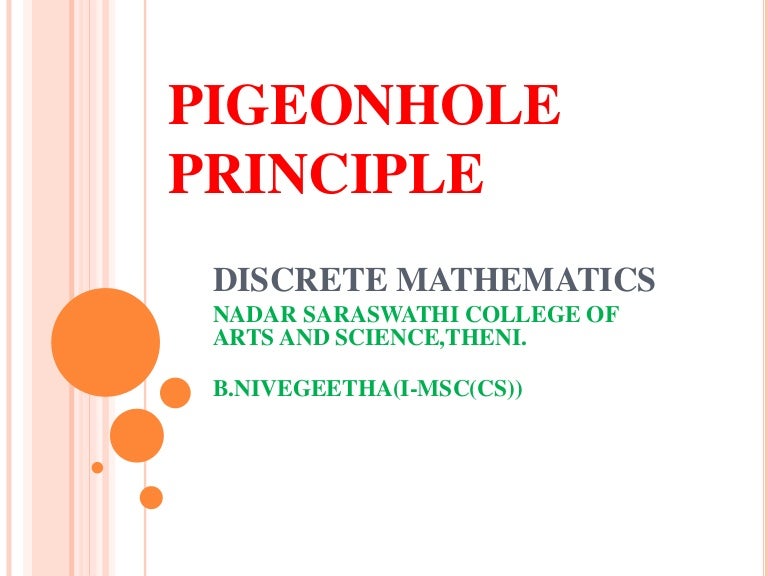
When $a/b$ is not exactly $\xi$, because all quantities in the numerator of the summation are integers. Rearranging, $qa - pb$ is nonzero since it is also an integer, $|qa - pb|$ must be at least $1$. We want to know how well $\alpha$ can be approximated using other rationals, since otherwise the problem is trivial. Suppose $\alpha = a/b$ where $a$ and $b$ are integers and $b \geqslant 1$. This may not sound that surprising at first, but it becomes striking when one compares it to rational case. In words, this theorem says that we can approximate the irrationals as closely as we want (in the sense of $\| q \alpha \|$) if we are allowed to pick a large enough $q$. If there are n n n pigeons, then it is possible for all of the pigeons to rest happily in. You can find the proof in robjohn's answer to the question: Approximation of irrationals by fractions. Consider a flock of pigeons nestled in a set of n n n pigeonholes. The pigeonhole principle is a great example of how even simple insights can have. Our answer to question 3 is that it is impossible for everyone in a group to shake hands with a different number of people. The beautiful thing about this proof is that the upper bound is very close to tight - there exist Sidon sets with size close to n1/2. So, the pigeonhole principle applies and says that there must be at least 2 people who took part in exactly the same number of handshakes. (The same proof can be replicated for the pairwise sums, but the differences give a better constant).



This theorem is a simple consequence of the pigeonhole principle, and I was very surprised on seeing the proof. So by the pigeonhole principle, (S 2) n 1 S O(n1/2) ( S 2) n 1 S O ( n 1 / 2). Then the theorem states that for any irrational number $\alpha$, there exists infinitely many $q \gt 0$ such that For a real number $x$, let $\|x\|$ denote the distance from $x$ to its closest integer. As the wikipedia article describes, Dirichlet's approximation theorem is a foundational result in diophantine approximation.


 0 kommentar(er)
0 kommentar(er)
